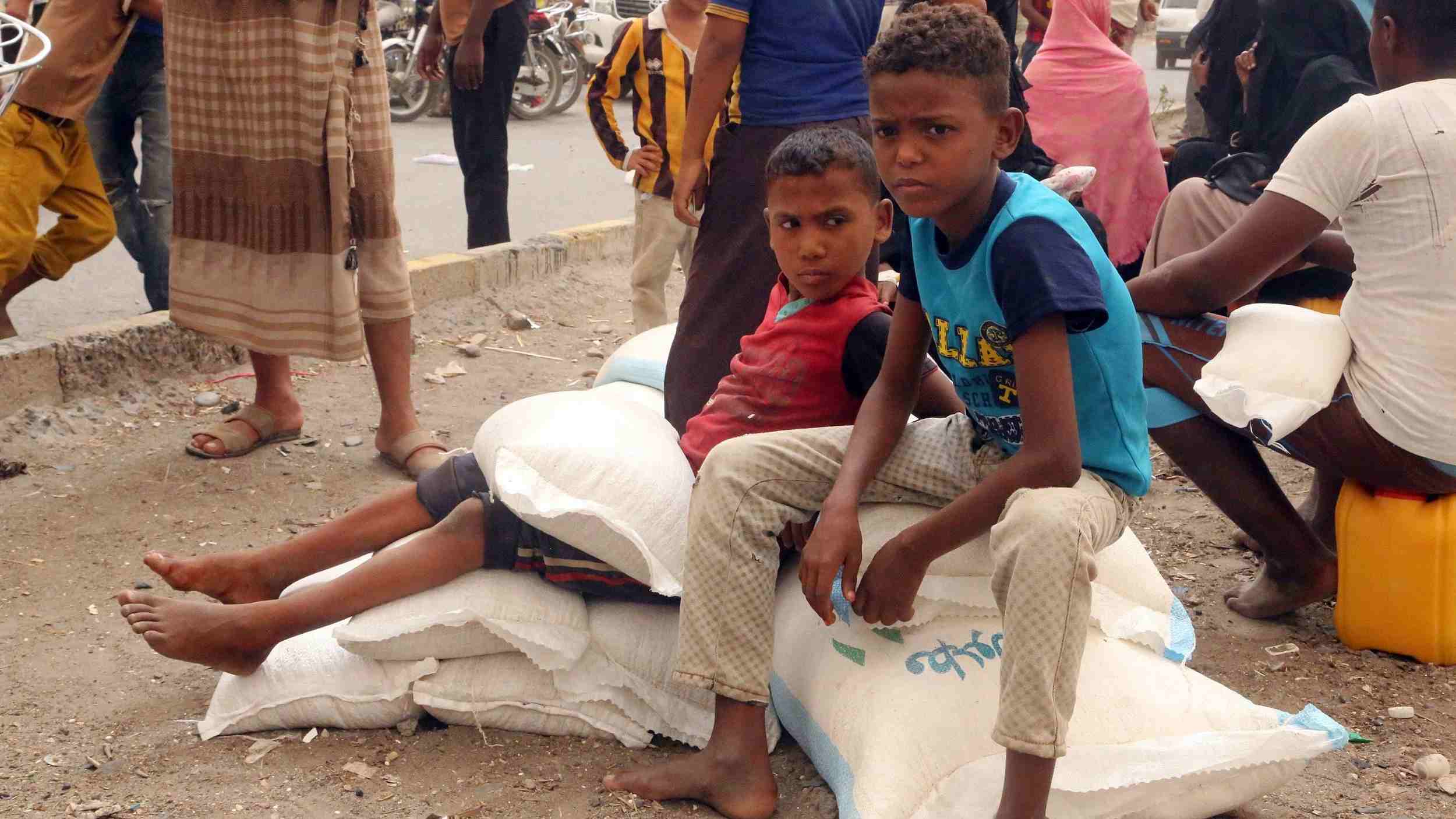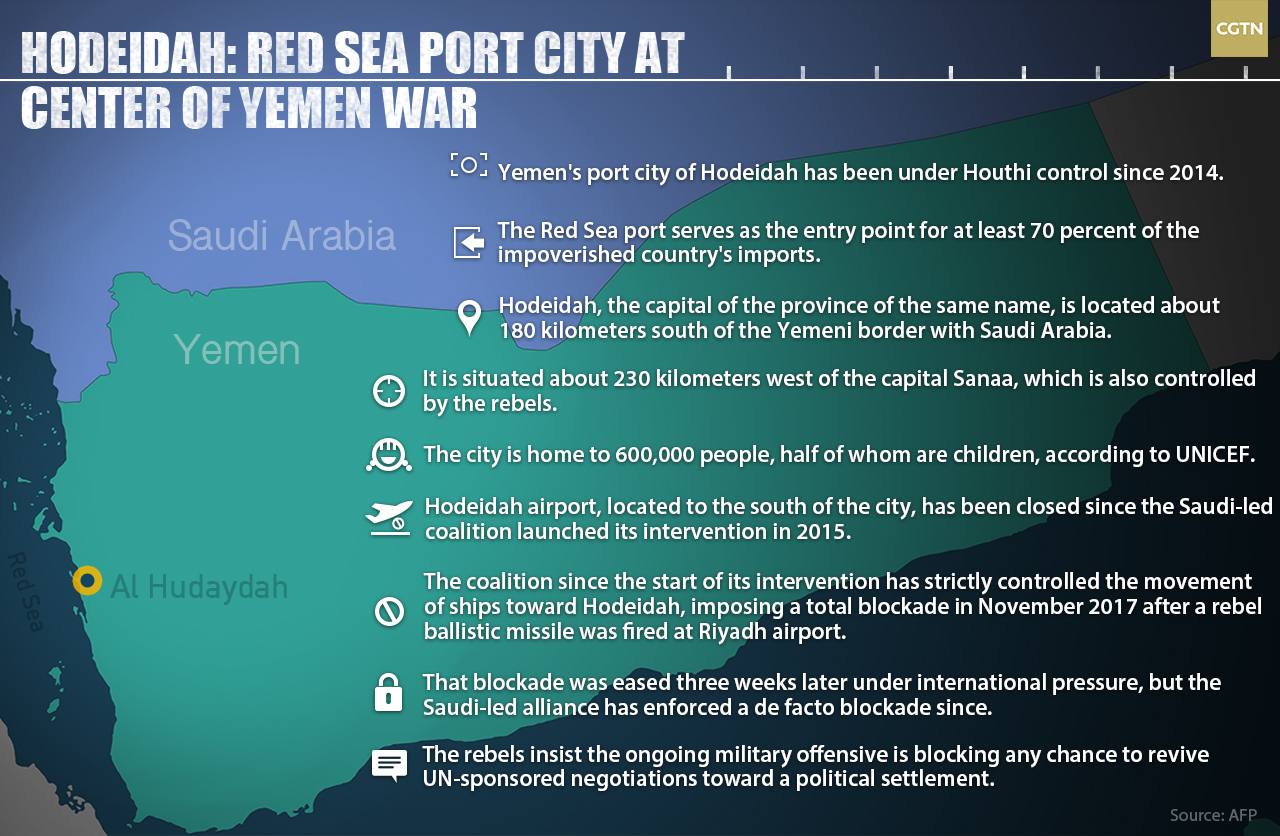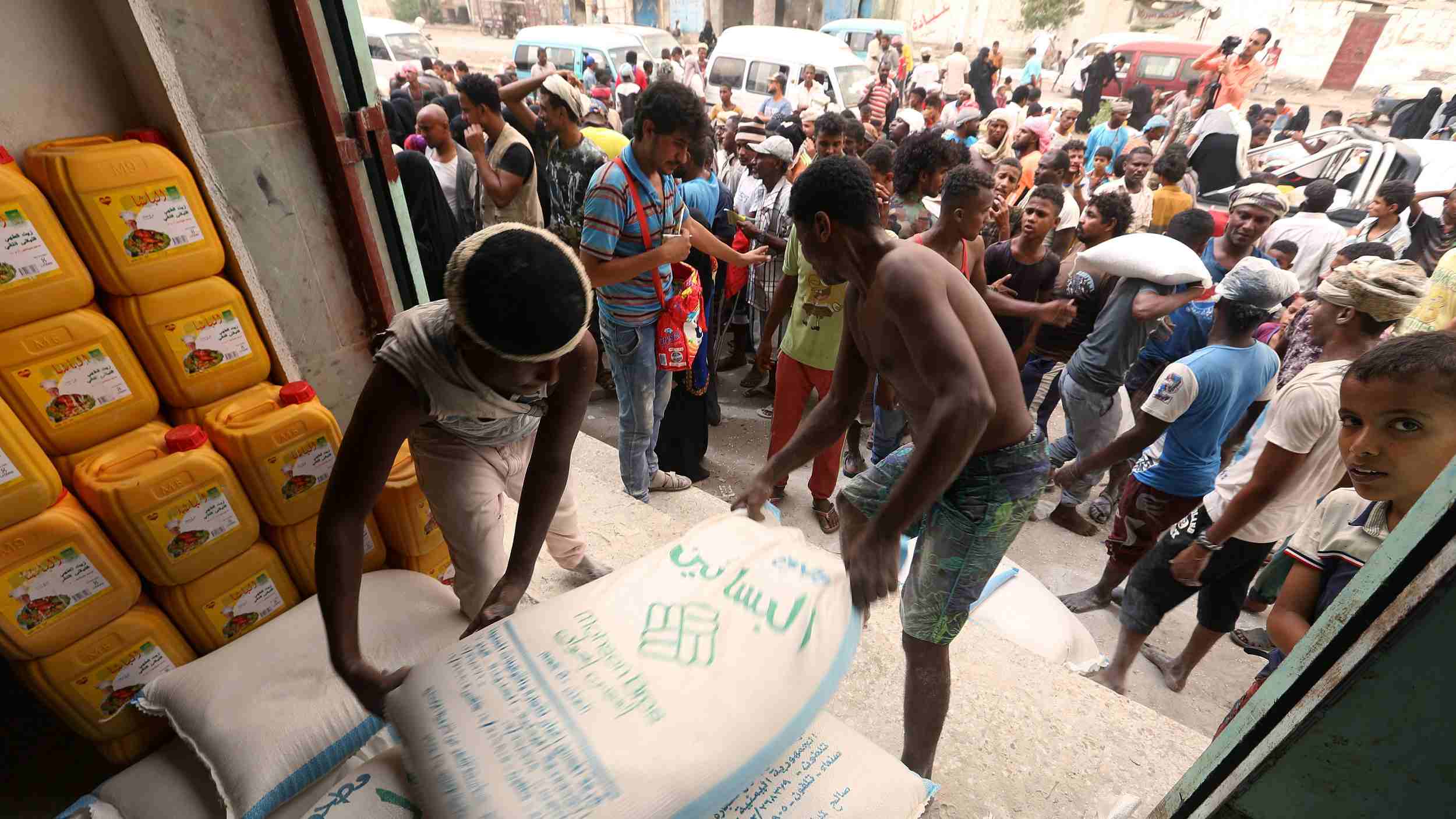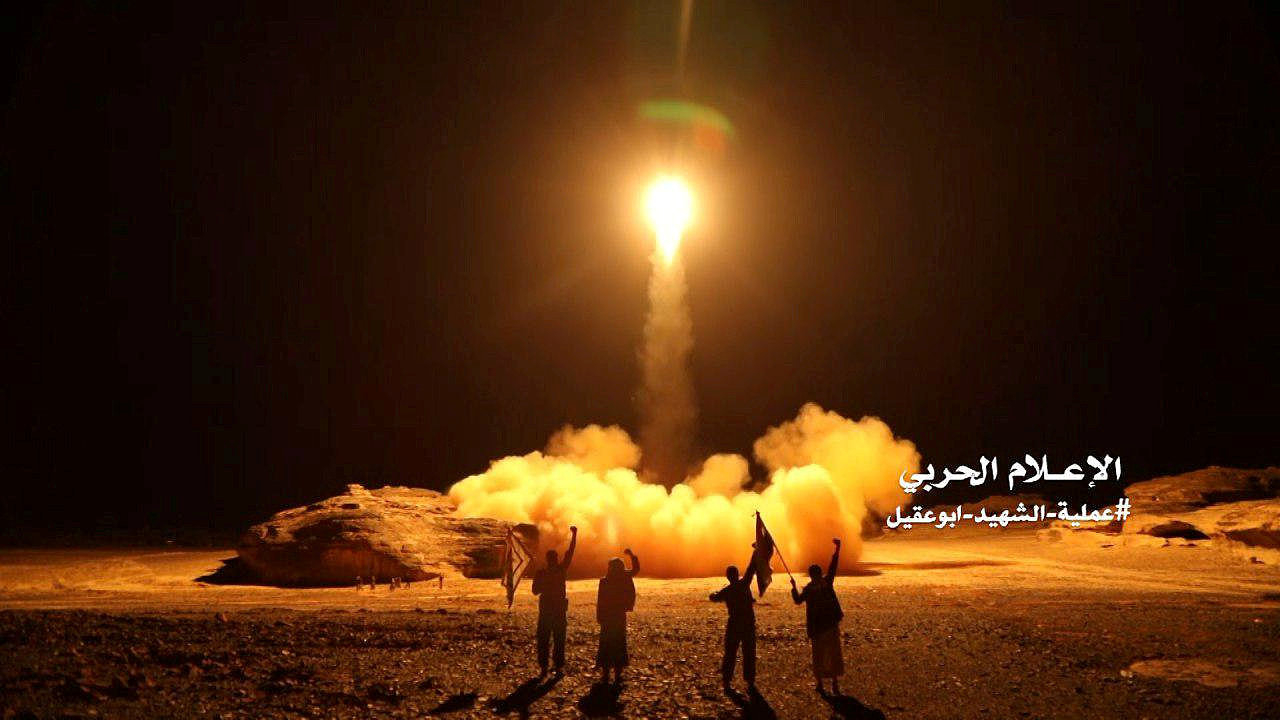
World
12:30, 15-Jun-2018
Hodeidah offensive: UN urges Yemen port to remain open amid humanitarian concerns
CGTN

The UN Security Council (UNSC) on Thursday called for the strategic Hodeidah port in Yemen to be kept open for aid deliveries as a top UN adviser expressed grave concern over the looming humanitarian disaster a day after the Saudi-led coalition launched a massive offensive to retake the Red Sea port from the Iran-backed Houthi rebels.
After a two-hour closed-door emergency meeting on the situation in Yemen at Britain’s request, Russian Ambassador Vassily Nebenzia, who holds the UNSC’s current presidency, said the council members were "united in their deep concern about the risks to the humanitarian situation."
Council members "reiterated their call for the ports of Hodeidah and Saleef to be kept open," he added.
Related Story: Will Saudi-led offensive lead to 'complete victory' for Yemen govt?

Yemeni authorities later said that Hodeidah port remained open for shipping. "We still have seven ships in the port. The work in the port is normal. And we have five other ships standing by waiting outside to enter," port director Dawood Fadel told the media.
Yemen's Foreign Minister Khaled Alyemany said that government forces were holding off on advancing on Hodeidah port for now, and "are not planning to destroy the infrastructure."
"We are in an area close to the airport, but not to the sea port. The sea port is totally out of operations, today," he said.
The fighting that began on Wednesday has so far left dozens dead, with an AFP report putting the death toll at 39. The report quoted military sources saying that coalition gunships pounded rebel positions as fighting raged several kilometers from Hodeidah airport, south of the city.
The Houthis suffered 30 fatalities on Thursday in the clashes, medical sources told AFP. Nine pro-government soldiers were killed in the same area, the medics said. Military sources said the deaths were caused by mines and snipers.
'Disastrous impact'

Workers unload sacks of wheat flour as people gather outside an aid distribution center in the Red Sea port city of Hodeidah, Yemen, on June 14, 2018. /VCG Photo
Workers unload sacks of wheat flour as people gather outside an aid distribution center in the Red Sea port city of Hodeidah, Yemen, on June 14, 2018. /VCG Photo
Earlier in the day, the UN Special Adviser on the Prevention of Genocide Adama Dieng warned that the military action will have a disastrous impact on civilians in Yemen, which he stressed is now being considered as the world’s worst humanitarian crisis with 10.4 million people on the brink of famine.
Emphasizing that Hodeidah is the entry point for 70 percent of humanitarian aid into the war-torn nation, the UN special adviser cautioned that a likely closure of the strategic port "for any length of time" could have a "disastrous impact" on the ability of humanitarian agencies to deliver assistance to a population that desperately needs it.
Dieng added that some 600,000 civilians are living in and around the port, which is currently controlled by the Houthi rebels.
On Monday, the Security Council said it supported UN envoy Martin Griffiths, who is leading diplomatic efforts to convince the Houthi rebels to hand over control of the port.
The council did not call on Saudi Arabia and the United Arab Emirates, whose troops are backing Yemeni pro-government forces, to refrain from attacking Hodeidah.
Riyadh and Abu Dhabi, which intervened against the Houthis in 2015 with the goal of restoring Yemen's government to power, have pledged to ensure a continuous flow of aid to the Arab world's poorest nation.
Two Saudi and UAE aid ships were in the waters off Hodeidah, coalition spokesman Turki al Maliki told Saudi state media.
Abdullah al Rabeeah, the head of Saudi King Salman Aid and Relief Centre, pledged an air, sea and land bridge would be opened "to transport aid and medical supplies, food, shelter and fuel other basic necessities."
UN hints at 'Iran-made' missiles

A photo distributed by the Houthi Military Media Unit shows the launch by Houthi forces of a ballistic missile aimed at Saudi Arabia on March 25, 2018. /VCG Photo
A photo distributed by the Houthi Military Media Unit shows the launch by Houthi forces of a ballistic missile aimed at Saudi Arabia on March 25, 2018. /VCG Photo
Meanwhile, Saudi state media reported that the Gulf kingdom’s air defenses on Thursday intercepted a ballistic missile fired from rebel-held territory in Yemen.
The missile was intercepted over Khamis Mushait in the kingdom's south, but no casualties were reported, the coalition said in a statement released by the official Saudi Press Agency.
The Iran-backed rebels claimed in a statement that the missile hit a Saudi air base.
The latest missile attack came amid an AFP report that cited a confidential UN document to suggest that parts of missiles, previously fired at Saudi Arabia by the Yemeni rebels, were made in Iran. The document however said that the UN officials were unable to determine when these components where sent to Yemen.
UN Secretary-General Antonio Guterres told the Security Council in the 14-page report that debris from the missiles fired since July 2017 "share key design features with a known type of missile manufactured" by Iran, the France-based news agency reported, citing the UN document which it claimed to have seen.
The UN document, sent to the council on Tuesday, added that “some component parts of the debris were manufactured in the Islamic Republic of Iran" but AFP said it remained unclear whether the transfer was in violation of UN restrictions.
UN officials were "unable to determine when such missiles, parts thereof or related technology may have been transferred from" Iran, the document said.
Iran has vehemently denied arming the Houthis despite accusations from the US and Saudi Arabia that missiles fired at Riyadh and other Saudi cities were Iranian-made.
(With input from agencies)
[Cover Photo: Yemeni children receive food aid in the coastal city of Hodeidah on June 14, 2018. /VCG Photo]
7567km

SITEMAP
Copyright © 2018 CGTN. Beijing ICP prepared NO.16065310-3
Copyright © 2018 CGTN. Beijing ICP prepared NO.16065310-3